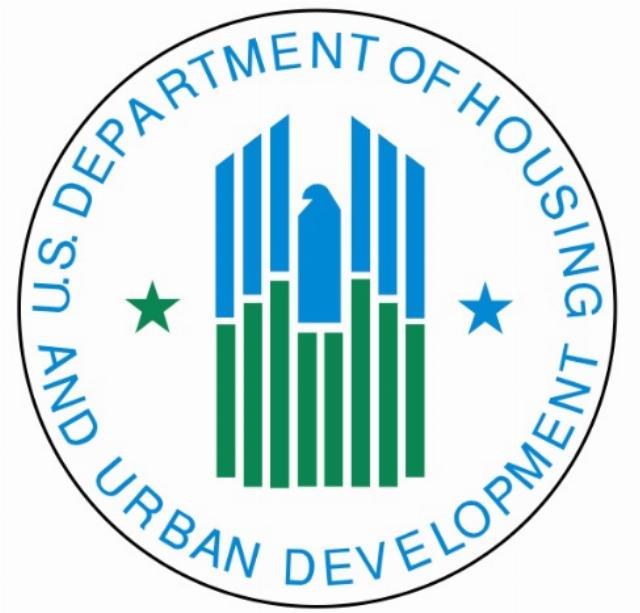

HUD
Housing and Urban Development's inspector general has been failing the public in regards to its oversight of the department.The Office of Inspector General (OIG) is tasked with investigating mismanagement, fraud, and abuse at the Department of Housing and Urban Development (HUD). Per the OIG, HUD has not met its mission for at least the last sixteen years. Failure in this regard is a cause for concern, putting the department, created in 1965, in Elon Musk’s DOGE’s crosshairs.
At the same time, the Inspector General reports describe HUD’s inability to meet its mission in harmless language, saying HUD is “improving.” In other words, it’s okay for HUD to be mismanaged year after year as long as there is “improvement.”
Shouldn’t the OIG judge the department’s performance the same way HUD judges landlords’ performance? To meet requirements, landlords must achieve a passing score (60 or higher) on HUD’s malicious compliance health and safety inspections. If landlords receive a failing score, of say a 25 on a health and safety inspection, HUD does not report the condition of the landlord’s failing property as improving if on the next inspection the score goes up 5 points to a 30. Instead, the landlord is told to make repairs immediately, and repairs are not made, or not made fast enough, the landlord can be subjected to all manner of enforcement actions, including forced sale, receivership, civil monetary penalties, and removal of residents.
The OIG has generated its HUD failing mission report year after year for at least sixteen years. Consequently, every year millions of taxpayer dollars are mismanaged, goals are not attained, and as a result, the people who depend on HUD for access to safe, decent, and affordable housing are short-shrifted. Even worse, based on OIG’s reports, Congress keeps increasing HUD’s budget.
The OIG website contains HUD’s failing mission reports back to Fiscal Year 2008. Here is a synopsis of those annual report cards.
2008-2024 reports — “Achieving HUD’s mission continues for be an ambitious challenge… given the agency’s diverse mission… and the millions of beneficiaries in its housing programs. HUD’s management problems had for years kept it on the Government Accountability’s (GAO) list of agencies with high-risk programs.” The Inspector General is telling HUD it cannot overcome its deficiencies, yet that’s “okay,” because it is improving.
In 2009, even though HUD still had not cured its management weaknesses, Congress tasked HUD with administering the almost $14 billion Recovery Act. The money was to be used to cure troubled city housing authorities. Unsurprisingly, OIG found that HUD continually failed to properly oversee distribution of the funds. And, based on department management of its Fedral Housing Administration program, the Inspector General expressed concern for the integrity of the Ginnie Mae mortgage-backed securities program:
“HUD’s top management challenges result from critical unaddressed internal and external risks, either longstanding, or recently emerged. Many challenges remain from prior years. They represent HUD’s greatest vulnerabilities to waste, fraud, abuse, and mismanagement, or pose significant risk to HUD’s ability to achieve its mission.”
HUD’s significant key mission deficiencies include:
- Promoting Health and Safety in HUD-Assisted Housing
- Increasing Access to Affordable Housing
- Mitigating Counterparty Risks
- Grants Management
- Enhancing Oversight of Disaster Recovery
- Managing Fraud Risk and Improper Payments
- Improving IT Modernization and Cybersecurity
- Managing Human Capital
- Increasing Effectiveness in Procurement.
For years OIG has been critical of HUD’s ability to identify exigent health and <img alt captext="HUD” class=”post-image-right” src=”https://conservativenewsbriefing.com/wp-content/uploads/2025/02/why-trumps-firing-the-hud-inspector-general-was-justified.jpg” width=”350″>safety deficiencies. It was not until 2022 that the department started inspecting rental units for missing or defective carbon monoxide detectors resulting in lost lives, but instead gigged landlords for missing sink and tub stoppers, and small cracks in parking lot asphalt. HUD’s exigent electrical deficiencies are not even national housing code compliant.
The department has failed to meet its mission of creating the strong, sustainable, inclusive communities, and quality affordable homes that Americans are paying for. “According to Milton Friedman, part of the problem with public housing is that it’s run by the government. He argues that this program is poorly designed and causes harm without alleviating poverty.”
Every year HUD tells OIG more money would assure mission accomplishment. HUD’s $35.2 billion budget for FY2008 “ensures that [HUD] can continue to accomplish its goals, perform effectively and produce impressive results by targeting limited resources where they are most needed on programs that work.” From 2008 to 2024, the HUD budget grew to $73.3 billion — a 210% increase in just sixteen years.
There is immediate blowback when quarterly earnings fail to meet expectations for publicly traded companies; stock values tumble, companies go out of business, or they make necessary changes to stay in business. Not so with HUD, Congress increases the department’s budget regardless of poor OIG “earnings” reports. There is little incentive to meet earnings expectations, that is, accomplish its mission.
HUD could learn from Tunnels to Towers. T2T is providing housing to countless needy veterans without complaint, mismanagement, or misappropriation of donors’ money. Government agencies, with few exceptions, have not been managed substantially well. HUD is not an exception.
Instead of saying that HUD is improving in the annual reports, OIG should be saying: “HUD has failed to meet expectations, and thus, has failed American families in seeking to better their quality of life through affordable and decent housing.” Even though the OIG reports on HUD’s inability to achieve its mission, it never recommends that the states should assume the department’s responsibilities. Transferring HUD’s mandate to the states, inter alia, would for starters eliminate duplication and inefficiencies created by the HUD/State housing partnership.
Under the Tenth Amendment, the federal government only has powers specifically granted by the Constitution. The Constitution reserves the power to govern housing, and other functions, like education, for the states. The states should be given full control over housing policy. Or, solution number two: let Elon used his scalpel and operate in situ.
Hank Vanderbeek was a career OIG forensic auditor in the Department of Health and Human Services and the Department of Veteran’s Affairs, and a HUD housing health and safety inspection contractor and consultant for many years. [email protected]
Image: HUD





